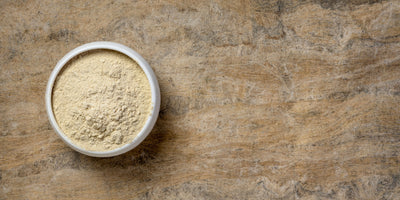
The Role of Deep Sleep Support Supplement in Sleep-Induced Immune Deficiency
Sleep and Immune Function: An Overview of the Connection
Sleep is as essential as a balanced diet and regular exercise in the context of health and well-being. This foundational relationship between sleep and immunity is backed by an ever-growing body of research highlighting sleep's critical role in our immune system's functioning.
The immune system's functioning is intricately linked with our sleep cycles. During sleep, our bodies produce and release specific proteins called cytokines that help promote sleep. Certain cytokines must increase when we have an infection or inflammation or are under stress. Sleep deprivation decreases the production of these protective cytokines and other immune cells, thus weakening the immune system.
The symbiotic relationship between sleep and the immune system has long been known, and recent studies continue to elucidate the complex interactions that occur during sleep that facilitate our body's defense mechanisms. Chronic sleep deficiency can lead to immunodeficiency and, thus, more susceptibility to illnesses.
The Impact of Sleep Deprivation on Immune Response
Sleep deprivation, or poor-quality sleep, has been associated with various health problems, including heart disease, diabetes, and obesity. However, one aspect that is often overlooked is the impact of sleep deprivation on our immune response. The immune system is a complex network of cells and proteins that defends the body against infection. Sleep deprivation can suppress the immune system, making it harder for the body to fight infections.
Sleep is critical for the body's T cells, an immune cell that fights infection. T cells need sleep to function properly; sleep deprivation reduces the effectiveness of T cells and decreases the body's ability to respond to viral pathogens.
Sleep deprivation also disrupts the normal functioning of the body's white blood cells, including natural killer cells, or NK cells. Reduced sleep quality can lower the activity of NK cells, hampering the body's innate immune response.
Sleep-Induced Immune Deficiency and Its Implications for Health
Sleep-induced immune deficiency is a condition where poor sleep leads to weakened immunity. This vulnerability might lead to an increased risk of developing chronic illnesses, suffering from frequent infections, or experiencing poor health outcomes from vaccinations.
The effect of sleep on immunological memory is a fascinating area of research. Immunological memory is the ability of the immune system to quickly and specifically recognise an antigen that the body has previously encountered. Sleep deprivation negatively impacts immunological memory, lowering the immune system's ability to respond effectively to pathogens.
The deficiency also poses a significant risk in terms of autoimmune disorders. Research suggests insufficient sleep can trigger inflammation and increase the risk of developing autoimmune diseases. Additionally, disrupted sleep patterns have been associated with allergic responses, further compounding the health risks of sleep-induced immune deficiency.
The Role of Melatonin in Modulating Immune Activity
Melatonin, the hormone that regulates our sleep-wake cycle, modulates immune activity. Melatonin enhances the immune response by stimulating the production of immune cells and cytokines, reinforcing the body's natural defenses.
Interestingly, melatonin also acts as a potent antioxidant and has anti-inflammatory effects, protecting cells from oxidative stress and inflammation, which can weaken the immune response. Studies suggest that melatonin supplementation can improve sleep quality and immune function. However, using it correctly and under proper guidance is crucial, as overuse can lead to side effects and diminish its efficacy.
The Role of Deep Sleep Support Supplement in Promoting Immune Resilience
In light of sleep's significant impact on our immune function, improving sleep quality has become a critical aspect of boosting immunity. This is where Biosphere Nutrition's Deep Sleep Support Supplement comes into play.
The Deep Sleep Support Supplement is a specially formulated blend of nutrients, including magnesium and the amino acid L-theanine, known to promote relaxation and deep sleep. By enhancing sleep quality, the supplement helps maintain optimal immune function, thereby reducing the risk of sleep-induced immune deficiency.
Research indicates that magnesium deficiency is associated with reduced sleep quality. By ensuring adequate magnesium levels, Biosphere's Deep Sleep Support supplement can help improve sleep quality and subsequently enhance immune function.
Another key ingredient, L-theanine, promotes relaxation and facilitates sleep. L-theanine can help improve sleep duration and quality, which are key for a healthy immune system, by inducing a state of calm and relaxation.
The interplay of sleep and immune function is a complex process. Optimal immune resilience requires quality sleep, a balanced diet, regular exercise, and good stress management. The Biosphere Nutrition's Deep Sleep Support Supplement is not a magic solution but a tool that can contribute to an overall lifestyle approach to boost immune health.
In conclusion, sleep and immunity are intertwined, with sleep deprivation negatively impacting the immune system and leading to several health complications. Biosphere Nutrition's Deep Sleep Support Supplement offers a potential solution to help improve sleep quality and support immune function. As we continue to learn more about the intricate connections between sleep and immunity, tools like these supplements will be crucial in our collective pursuit of enhanced health and well-being.
Sleep Deprivation and Susceptibility to Infections: Insights from Studies
Several studies have shown a direct correlation between sleep deprivation and infection susceptibility. A lack of sleep can suppress immune function, reducing the body's ability to fight off bacterial and viral infections.
One study, for example, found that individuals who slept fewer than six hours per night were more likely to catch a common cold than those who slept for more than seven hours. This finding suggests that sleep duration can directly impact our vulnerability to infections, with shorter sleep durations linked to a higher risk of sickness.
Sleep deprivation can also impact the body's response to vaccinations. Vaccines work by stimulating the immune system, which develops a memory of the infectious agent and responds more efficiently when exposed to the pathogen in the future. However, when sleep is restricted, the immune system's ability to respond to vaccines can be diminished, resulting in a less effective immune response.
The Impact of Sleep Quality on Vaccination Response
Not just the quantity of sleep that matters for immunity, but also the quality. Studies have found poor sleep quality can hinder the body's response to vaccinations.
For example, a study conducted on hepatitis B vaccinations found that individuals who slept poorly after receiving the vaccine showed a lower antibody response, suggesting that their immune systems were less capable of fighting off the virus. This correlation underscores the importance of good sleep for optimising the body's immunological responses and ensuring the effectiveness of vaccinations.
A good night's sleep aids the body's natural defenses by allowing the immune system to recharge, fight off potential threats more effectively, and respond to vaccinations more robustly.
The Link Between Sleep and Innate Immunity
Innate immunity is our first line of defense against pathogens. It comprises various components, including skin, mucus, and immune cells like macrophages and natural killer (NK) cells. These immune cells are particularly active during sleep, hunting and destroying potential bodily threats.
Studies have shown that sleep deprivation can hamper NK cell activity, thus weakening the body's innate immune response. This reduced activity can increase susceptibility to illnesses and lower the effectiveness of the immune system's initial response to pathogens.
Consequently, sleep quality and duration are crucial to maintaining a robust innate immune system. Enhancing sleep through natural aids such as the Deep Sleep Support Supplement may help ensure the optimal functioning of innate immunity, acting as a crucial element in our body's defense mechanism.
Sleep-Induced Immune Dysregulation and Chronic Inflammation
Sleep deprivation can trigger a range of negative health outcomes, including immune dysregulation and chronic inflammation. A lack of sleep can disrupt the balance of immune cells, leading to an overactive immune response and chronic inflammation. This inflammation can further disturb sleep, creating a vicious cycle of sleep deprivation and inflammation.
Chronic inflammation is associated with numerous health issues, including heart disease, diabetes, and certain types of cancer. The immune dysregulation from sleep deprivation can also exacerbate autoimmune disorders where the immune system mistakenly attacks healthy cells.
This further highlights the necessity of adequate, quality sleep for maintaining immune balance and reducing the risk of inflammation-related health issues.
The Effect of Sleep Deprivation on Immunological Memory
Immunological memory is a critical aspect of our body's defense mechanism. It enables our immune system to quickly and specifically recognise an antigen that the body has previously encountered and initiate a corresponding immune response.
Sleep plays a vital role in the formation and maintenance of immunological memory. During sleep, our immune system consolidates information about the pathogens it has encountered, enhancing our immunity against future infections. However, sleep deprivation can hinder this process, leading to a weaker immune response and a greater susceptibility to infections.
In conclusion, the link between sleep and immune function is undeniably multifaceted. Sleep deprivation can have severe implications for our immunity, increasing susceptibility to infections, disrupting immune response, and potentially leading to chronic inflammation and autoimmune disorders. Supplements like Biosphere Nutrition's Deep Sleep Support can significantly enhance sleep quality, thereby supporting a robust immune system. Nonetheless, they should be considered part of a holistic approach to health that includes diet, exercise, and stress management.
Sleep-Induced Immune Deficiency and Autoimmune Disorders
Sleep is an integral part of our body's immune regulation. Sleep-induced immune deficiency, resulting from insufficient or poor-quality sleep, can contribute to developing and progressing autoimmune disorders. These conditions occur when the immune system mistakenly attacks the body's healthy cells, viewing them as foreign threats.
Several studies have found associations between sleep disorders and autoimmune diseases, such as rheumatoid arthritis, lupus, and multiple sclerosis. Inadequate sleep can lead to an overactive immune system, causing increased inflammation and potentially triggering or exacerbating autoimmune diseases.
Furthermore, individuals with autoimmune disorders often suffer from sleep disturbances, which can worsen disease symptoms, creating a vicious cycle of poor sleep and increased disease activity. Therefore, interventions to improve sleep, such as Biosphere Nutrition's Deep Sleep Support Supplement, could potentially play a role in managing autoimmune disorders.
The Role of Sleep in Enhancing T-Cell-Mediated Immunity
T cells are a crucial component of our adaptive immune system. They recognise and destroy infected cells and play a critical role in immunological memory, remembering previous invaders and quickly responding to future encounters with the same pathogen.
Sleep has been found to enhance T-cell responses. During sleep, the body releases certain proteins that promote T-cell activity. Moreover, studies show that the T cells of sleep-deprived individuals have a reduced ability to bind to their targets, thus impairing their function.
The role of sleep in T cell-mediated immunity further underlines the importance of maintaining good sleep hygiene for optimal immune health. By ensuring good sleep quality, Biosphere's Deep Sleep Support supplement may indirectly support T cell function and overall immunity.
Sleep Deprivation and Allergic Responses: Unraveling the Connection

Emerging research suggests a link between sleep deprivation and increased allergic responses. Allergic reactions are essentially an overreaction of the immune system to usually harmless substances, such as pollen or dust mites.
Sleep deprivation can disrupt the immune system's balance, leading to an overactive immune response and potentially exacerbating allergies. Moreover, individuals with allergies often suffer from sleep disturbances due to symptoms such as itching or difficulty breathing, which can further aggravate their allergic response.
Therefore, adequate sleep is important for general immunity and crucial in managing and preventing allergic reactions. The Deep Sleep Support Supplement could indirectly help regulate the immune system and potentially mitigate allergic responses by promoting quality sleep.
The Impact of Sleep Disruptions on Immunological Health
Sleep disruptions, such as those caused by shift work, jet lag, or sleep disorders, can significantly impact our immunological health. They can cause dysregulation of the immune system, leading to a weakened immune response and increased inflammation.
The disruption of circadian rhythms, our internal biological clock that regulates sleep-wake cycles, can affect the timing and function of immune cells, potentially reducing their efficacy.
This highlights the importance of getting adequate sleep and maintaining regular sleep patterns for optimal immune function. By supporting quality sleep and potentially helping to regulate sleep patterns, Biosphere Nutrition's Deep Sleep Support Supplement can contribute to maintaining healthy immune function.
Sleep and Natural Killer (NK) Cell Activity: A Comprehensive Review
Natural Killer (NK) cells are a crucial part of our innate immune system, rapidly responding to viral-infected cells and tumor formation. Their activity is closely linked with sleep and can be significantly reduced in sleep-deprivation situations.
During sleep, especially deep sleep, NK cell activity is typically increased, enhancing the body's ability to respond to potential threats. However, chronic sleep loss can reduce the quantity and function of NK cells, potentially compromising the body's defenses.
Once again, this relationship underscores the importance of good sleep quality and duration in maintaining immune health. Products like the Deep Sleep Support Supplement can support sleep quality, potentially contributing to optimal NK cell activity and overall immune function.
In conclusion, the importance of quality sleep for maintaining a healthy immune system cannot be overstated. From the functioning of T cells to the activity of NK cells, every aspect of our immune system is intertwined with sleep. While Biosphere Nutrition's Deep Sleep Support Supplement can play a valuable role in supporting sleep quality and immune function, it should be a part of a comprehensive approach to health that includes a balanced diet, regular exercise, and proper stress management.
Summary
Sleep and Immune Function- Sleep is crucial for immune health, similar to diet and exercise.
- Sleep deprivation reduces cytokines, weakening the immune system.
- Lack of sleep affects health and weakens immune response.
- It impairs T cells and NK cells, reducing infection resistance.
- Poor sleep leads to weakened immunity and increased illness risk.
- It negatively impacts immunological memory and autoimmune disorders.
- Melatonin regulates sleep and boosts immune response.
- It acts as an antioxidant and needs careful supplementation.
- The supplement improves sleep quality, supporting immunity.
- Contains magnesium and L-theanine for better sleep and immune health.
- Studies link sleep loss to higher infection risk.
- It also reduces vaccine effectiveness.
- Sleep quality is key for effective immune response to vaccines.
- Good sleep ensures stronger defense against diseases.
- Innate immunity relies on sleep; deprivation weakens it.
- Quality sleep enhances innate immune defenses.
- Lack of sleep causes immune imbalance and chronic inflammation.
- It worsens autoimmune disorders.
- Sleep is vital for immunological memory formation.
- Deprivation leads to a weaker immune response.
- Insufficient sleep contributes to autoimmune diseases.
- Improving sleep may help manage these disorders.
- Sleep boosts T-cell function for adaptive immunity.
- Good sleep is crucial for T-cell effectiveness.
- Sleep loss can worsen allergies.
- Adequate sleep is important for allergy management.
- Sleep pattern disruptions harm immune health.
- Regular sleep patterns are essential for immunity.
- NK cell activity, key for immunity, is linked to sleep.
- Good sleep supports NK cell function and immune health.
Deep Sleep Support
We’ve created a Deep Sleep Supporting supplement with a combination of the best available ingredients proven to assist in a better night’s sleep. This supplement is an easy-to-mix, great-tasting powder, offering a therapeutic dose of the nutrients your body needs to relax and fall asleep. Learn more about it here.







